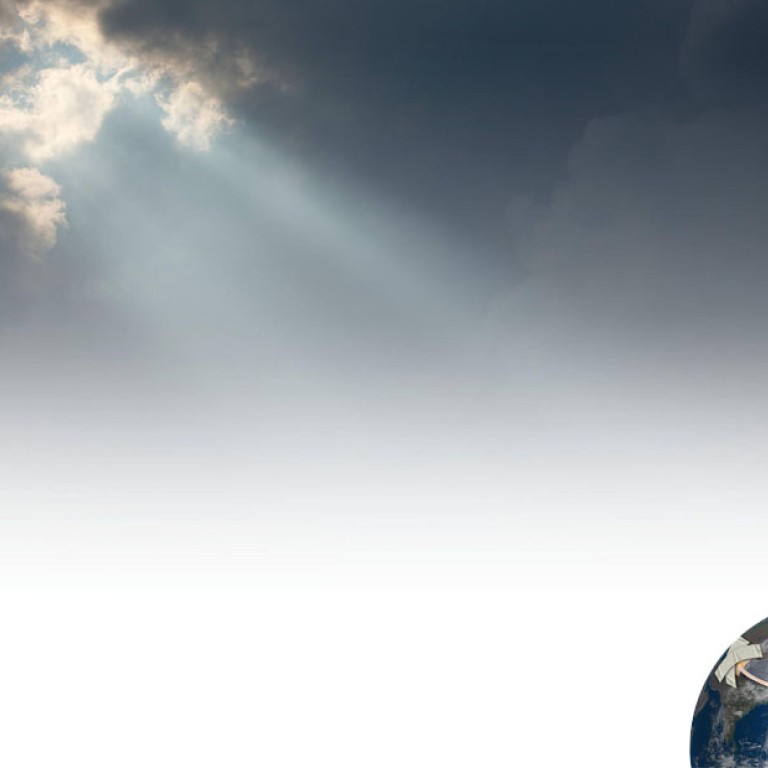
Broken world
India and Japan, with backing from China, should take lead in reshaping the battered global financial and economic structures
The American-led global economic and financial system is broken - you have only to look at the shenanigans in Washington these past few weeks to see that - so where are the clear thinkers who can dream of a plan to fix things, and where are the practical politicians who dare to try to shape a new world?

The task is immense and perhaps it is only a pipe dream (though I have not been smoking anything) to imagine that there are creative thinkers and hard-headed politicians who are up to the task. But India and Japan, with backing from China, offer the best hope.
The past six decades of Pax Americana have brought an unprecedented period of peace and prosperity to the world. Japan rose like a phoenix literally from the ashes of war and defeat, under the tutelage of the American peace and with generous aid and the hard work of its own people.
The past 20 years have seen the emergence of China, the growing strength of the Asian tigers and dragons, the rapid, though stuttering, growth of another ancient civilisation of India and, lately, economic stirrings in Africa, partly aided by China.
But recent days have seen just how arthritic the system has become. As the United States was on the verge of its own economic recovery, politicians stepped up their quarrelling to the point of making the country ungovernable, and then forced the shutdown and took it to the brink of reneging on its debts.
All the financial leaders in the world were in Washington last week, but their comments pleading for the US to pull itself together were like huffing and puffing in the face of a typhoon.
Christine Lagarde, the head of the International Monetary Fund, warned that America risked tipping the world into recession. Anshu Jain, the head of Deutsche Bank, said it would be "utterly catastrophic … a very rapidly spreading, fatal disease" for the world if the US defaulted. Jamie Dimon, the embattled head of JP Morgan Chase, was more prosaic, pleading: "Please, let's not shoot ourselves in the foot."
US politicians ignored the dire views of outsiders and continued quarrelling. Commentators in the country argue that Republican opponents have thrown away the traditional rules of politics. This is why it will be hard to get to civilised government without new elections, new leaders and a new appreciation of America's strengths and weaknesses in a changed world.
It is hard to see that coming easily. American capitalism, even though still vibrant, is in danger of being held to ransom by powerful interests. The too-big-to-fail banks protected by billions of dollars in subsidies are one example. JP Morgan has a US$23 billion war chest against litigation claims, so what wickedness has the bank been up to?
Essentially, their ideas tinker with a broken system, putting bandages on a raging cancer
There are also billions of dollars in aid to big oil firms, big drugmakers, big farmers and many of America's leading corporations. Fed by well-funded K Street lobbyists, the US is increasingly looking inward.
Leading Washington think tanks have suggested changes to the global financial system to allow for bigger says for China, India and emerging powers.
Essentially, their ideas tinker with a broken system, putting bandages on a raging cancer. Lifting China's shareholding in the International Monetary Fund to 6.071 per cent while the US retains a veto 16.479 per cent is laughable when the Congress refuses to act even when there is no financial cost to the US.
Proposed remedies so far do not tackle the complex mix of problems: the global financial system is an ailing, patched-up version of Bretton Woods 1944 that needs a radical overhaul; the US is still the biggest economic power but is no longer the sole economic superpower; China is on the way to becoming an economic superpower but is reluctant to assume global responsibilities, and other countries are afraid of how China will exercise its muscle; European countries pretend to be part of a European Union but cling to ancient national privileges.
Sweeping reforms are needed to fix the global financial system. But who is going to propose them, let alone work them out? India and Japan should take the lead. Both have an intense stake in the system, neither can aspire to superpower status, both have a strong interest in seeing that China contributes constructively and with a global outlook, and both have experienced and articulate policymakers who know the way the world works even if they lack the imagination to think of a better one.
They have to involve China. A couple of years ago, I would have said this was difficult because of Beijing's nationalism. But Zhu Min, the deputy managing director of the IMF, has shown an ability to understand the global dimension of issues.
Will Britain, whose John Maynard Keynes was a founding father of the 1944 IMF and which has a profusion of economic thinkers, come on board? Will Lagarde contribute, remembering her role at the IMF rather than her French origins? Is there an American who understands that the antics in Washington are shooting America not in the foot but in its vital organs?

